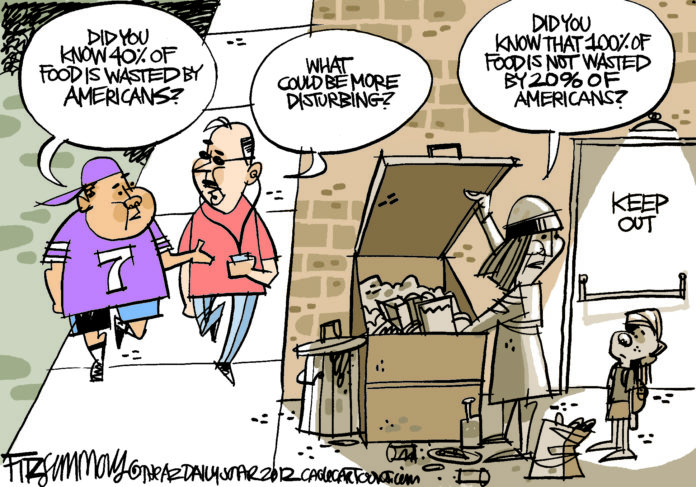BY SHARON MARTIN
 My friend and I were having a kitchen table conversation.
My friend and I were having a kitchen table conversation.
“If we had universal health care, people could choose their jobs based on what they wanted to be rather than on what provided the best insurance.”
“The job market will always be based on supply and demand,” he said. He should know. He has been working in the IT industry for 20 years now.
“It would promote entrepreneurship. And what if a parent could choose a minimum wage job because he or she didn’t need to stay off work to get state insurance for the kids?”
We agree on the need for universal health care and on the economics and morality of good preventive care.
“What if one parent could stay home when the kids are young? Wouldn’t saving the cost of health insurance and day care balance one salary?”
“Our economy is based on two incomes now.”
Our conversation turned to the food system.
“One in five kids in Oklahoma goes to bed hungry, but there are people who advocate cutting food stamps and WIC.” I’m sure I sounded outraged.
“What do you do about people who take their SNAP cards and buy $200 worth of meat to sell to feed their addictions?” He likes to play devil’s advocate. “And what about people who just keep having more kids they can’t afford to feed?”
I didn’t have an answer for the latter, but I did have suggestions for the former.
“We need a new War on Poverty. We need to end the War on Drugs. And we could go back to the old commodity system. You can barter peanut butter and powdered milk, but not profitably.”
Sure, the commodity system requires infrastructure and manpower. There are shipping costs, both in money and carbon footprint. We’d need to use local food systems. And those who get commodities could provide at least some of the manpower, like with the food coop.
“We could turn schools into community centers where parents could come in the evening and learn job skills and nutrition while their kids take music lessons and karate.”
Education should be a lifelong endeavor, a family affair.
“What if we built a community garden? And a canning and food preservation center where people learn how to feed themselves!”
I could imagine the small plots, folks working together.
“This is starting to sound like a John Lennon song,” my friend said.
I grinned. “You may say I’m a dreamer, but I’m not the only one.”
When dreamers take action, things get done.
And sometimes it starts with conversation at the kitchen table.
– Sharon Martin lives in Oilton, OK and is a regular contributor to The Oklahoma Observer









“What do you do about people who take their SNAP cards and buy $200 worth of meat to sell to feed their addictions?”
There will always be someone trying to take advantage of a given situation. Where there is money to be gained, there will be someone trying to run a scam. This is true at the SNAP level, as well as at the Offshore Account level.
How about the “disabled” person caught shoveling snow? Or the deadbeat dad who gets paid cash so he won’t have to pay child support? Or the multimillionaire who claims most of his living expenses as business expenses?
Playing fast and loose with the rules is simply something people do.
This doesn’t mean there shouldn’t be a safety net. The vast majority of folks aren’t running a scam and don’t buy $200 worth of meat. They live hand to mouth and SNAP helps them out.